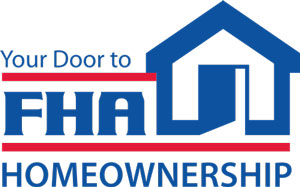 FHA Home Mortgages can be somewhat confusing, especially for first-time homebuyers. As a result, we have put together an FHA Home Mortgage Guide to help you better understand one of the most important mortgage options available to many homebuyers.
FHA Home Mortgages can be somewhat confusing, especially for first-time homebuyers. As a result, we have put together an FHA Home Mortgage Guide to help you better understand one of the most important mortgage options available to many homebuyers.
FHA Mortgage
An FHA Home Mortgage is a home loan granted to American citizens that is insured by the FHA (Federal Housing Administration), an agency of the federal government.
This program was developed in the 1930s when our nation experienced many home foreclosures and mortgage defaults due to the Great Depression. The United States government created this program to help re-stimulate the housing market, making the acquiring of home loans much easier and far more affordable.
FHA insurance protects the lender by reducing the risk against potential loan defaults of the borrower. Since many first-time homebuyers have a limited credit history, banks might be fearful of lending tens of thousands of dollars to them. The FHA Home Mortgage program helps by guaranteeing repayment of the loan.
Advantages of an FHA Home Loan
FHA Mortgages are very easy to acquire for most first-time homebuyers, even for those with less than perfect credit. Even people who have suffered from bankruptcy or foreclosure can be eligible for an FHA loan. These loans also require a lower down payment in comparison to other types of home loans. Most home buyers who get an FHA-insured mortgage qualify to pay the 3.5% down payment.
Another advantage of FHA home loans is that they are assumable — if you sell your home, the buyer can “assume” your FHA loan. This feature of an FHA loan could benefit you by increasing the number of potential buyers of your home when it comes time to sell.
Disadvantages of an FHA Home Loan
Every home loan product has advantages and disadvantages. As a result, it’s helpful to use an experienced mortgage broker to analyze your home loan options in respect to your specific financial position.
Of course, the benefits of an FHA home loan come at a cost. Because the federal government is insuring your loan against potential default while also allowing a low down payment, you will be required to pay two types of insurance in addition to the monthly payment.
- Upfront Mortgage Insurance Premium: Insurance premium paid upfront and in full, which may be included in the financed portion of the mortgage.
- Annual Mortgage Insurance Premium: Insurance premium paid monthly, and included in your monthly mortgage payment.
Upfront Mortgage Insurance Premium (MIP)
The FHA Loan Program requires all borrowers to pay 1.75% of the total amount of the mortgage upfront, regardless of the borrower’s credit history. For example, an FHA Home Loan in the amount of $250,000 would require an upfront payment of $4,375, or $250,000 x 1.75%. This amount can be paid at the closing in one lump sum or rolled into the total balance of the FHA loan.
Annual MIP (charged monthly)
Even though this is called an annual premium, it’s divided into monthly payments and figured into your monthly mortgage payment.
The annual amount will be based on three main factors: Loan amount, length of the loan, and the loan-to-value ratio (LTV). Different MIP values are assigned for loans that exceed 15 years vs. those less than 15 years. And a threshold amount of $625,000 is also a determining factor.
- Loans with a term of greater than 15 Years and Loan amount < or =$625,000
- LTV less than or equal to 95%, annual premiums are 1.30%
- LTV above 95%, annual premiums are 1.35%.
- Loans with a term of greater than 15 Years and Loan Amount >$625,000
- LTV less than or equal to 95%, annual premiums are 1.50%
- LTV above 95%, annual premiums are 1.55%
- Loans with a term of 15 years or less and Loan amount < or =$625,000
- LTV less than or equal to 90%, annual premiums are .45%
- LTV above 90%, annual premiums are .70%
- Loans with a term of 15 Years or less and Loan Amount >$625,000
- LTV less than or equal to 90%, annual premiums are .70%
- LTV above 90%, annual premiums are .95%
Previously, borrowers with an LTV that was less than 78% and who were acquiring an FHA Loan that was less than 15 years in duration were exempt from paying the Annual MIP. Effective June 3, 2013, these borrowers are also required to pay an MIP of .45%.
The new rules effective June 3, 2013 also changed when you can stop paying the monthly MIP. Previously MIP could be canceled once the loan value reached 78% of the original loan balance or 5 years. Now, for loans greater than 90% loan to value and terms of 30 years or 15 years, the MIP is required for the full loan term. For loans with LTV less than 90%, the MIP is required for 11 years, including loans with LTV less than 78%.
FHA Home Loan Eligibility Requirements Overview
- A steady history of employment or proof of employment with the same company for the previous two years.
- Must be of legal age to purchase a home in your state of residence, be a legal US citizen, and possess a valid Social Security Number.
- A minimum down payment of 3.5% is required of all borrowers. However, the money can be provided as a gift from a friend or family member.
- Only loans for primary residences are eligible for an FHA Home Mortgage.
- Property must be approved and appraised by an FHA-certified inspector.
- The total amount of your front-end ration cannot exceed 31% of your total gross yearly income. This ratio is determined by combining the costs of monthly mortgage payments, homeowners association fees (if applicable), mortgage insurance payments, homeowner’s insurance, and property taxes. In some cases, ratios as high as 46.99% may still qualify with some additional documentation.
- The total amount of your back-end ration cannot exceed 43% of your total gross yearly income. This ratio is determined by combining the costs of student loans, car loans, credit card debt, and other similar monthly expenses. In some cases, ratios as high as 56.99% may still qualify with some additional documentation.
- In order to be considered immediately eligible for an FHA Home Loan with a minimum down payment of 3.5%, a threshold credit score rating of 580 must first be met.
- In some cases of credit scores ranking from 500 to 579 for borrowers with a maximum LTV of 90%, the down payment required may be increased to 10% of the total mortgage amount.
- Borrowers must be out of bankruptcy proceedings for a minimum of two years, in most cases. They will also be required to have the proper rating of good credit. Certain exceptions can be made for cases in which the circumstances which led to the bankruptcy were beyond your control.
- Borrowers must be out of foreclosure proceedings for a minimum of three years, in most cases. They will also be required to have the proper ratings of good credit. Certain exceptions can be made for cases with extenuating circumstances.
- All properties must meet specific criteria and minimum standards of the FHA in order to qualify. This will ultimately be determined by your FHA-certified inspector. If the home does not meet these predetermined requirements, the seller must agree to make the necessary modifications to the property before the closing of the mortgage process.
FHA Mortgage Limits
There are maximum mortgage limits for FHA loans that vary by state and county. In certain counties, you may be able to get financing for a loan size up to $729,750 with a 3.5% down payment.
FHA Home Loan Process
The FHA home loan process is similar to any other home loan process.
After choosing an FHA-approved mortgage broker, you can pre-qualify for a home loan and begin the mortgage application process.
Marimark Mortgage
Marimark Mortgage is based in Tampa, Florida and serves the mortgage needs of homebuyers, homeowners, and investors in Florida, Virginia, and Pennsylvania.
We specialize in conventional home mortgages, FHA, VA, and USDA mortgage options, refinance loans, and reverse mortgages. We’ve worked extensively with cash-out refinancing and help clients to lower their monthly mortgage payments.
To get started with a mortgage to buy your next home, please fill out our Quick Mortgage Application, or contact us direct.

The Marimark Mortgage Newsletter will keep you informed with important events in the mortgage industry that could impact your finances.
We especially focus on ways to save money on your current and future mortgages. And, we continually share the information we share with our clients, because we believe informed consumers are the best consumers.
Real estate agents, and other professionals in the industry, will receive an ongoing wealth of information that will help them serve their clients.